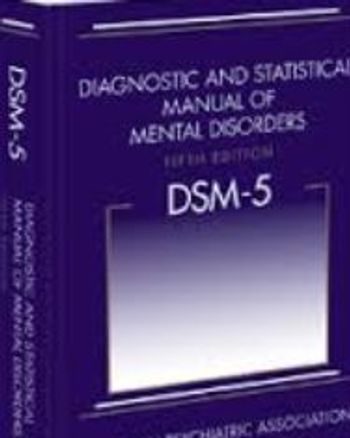
This evidence-based tool is composed of a series of questionnaires that assist clinicians in making person-centered cultural assessments to inform diagnosis and treatment planning.

This evidence-based tool is composed of a series of questionnaires that assist clinicians in making person-centered cultural assessments to inform diagnosis and treatment planning.
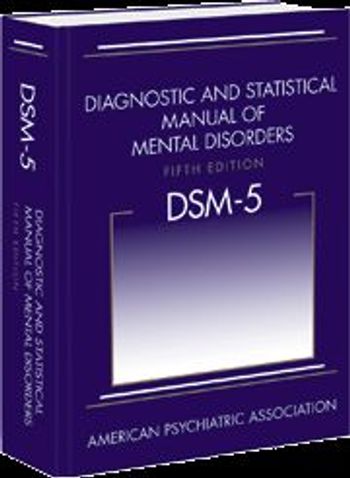
Given that one of the primary goals of making DSM revisions is to improve its clinical utility, establishing a baseline of current usage is critical to inform future proposals. For this and other reasons, the authors provide preliminary results from research focused on determining clinicians’ actual use of DSM.
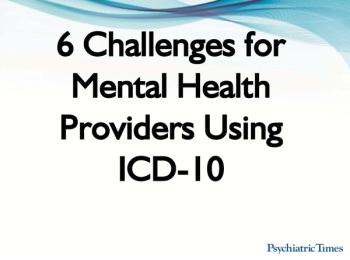
The transition to ICD-10 poses unique challenges for mental health providers. Here are 6 documentation and coding issues they need to understand.

The WHO Disability Assessment Schedule, Version 2 is included in Section III of DSM-5. What is the WHODAS 2.0 used to assess?
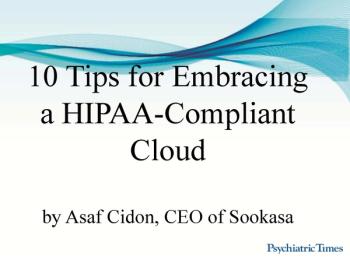
Using the cloud in a savvy way can make your work easier and keep your patients happy-as long as you deploy it in a secure way. Here are 10 tips for embracing the cloud in your psychiatric practice.

Should racism be considered a psychiatric disorder?
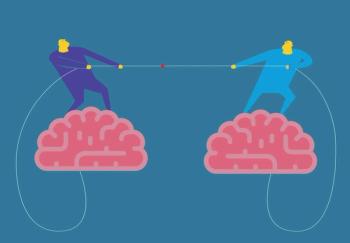
What psychiatry needs is a new approach to “psychiatric theory.” Here are a few practical suggestions.

What is known-and what is not known-about the clinical use of the DSM?

This psychiatrist takes notice when he hears public remarks by celebrities on their alleged psychiatric illnesses. A perfect example is when Jerry Seinfeld claimed he was “a bit autistic” to Brian Williams on NBC Nightly News.

A proper psychiatric diagnosis requires the ability to elicit information, identify symptoms, and recognize behavioral patterns. Dr Michael First, author of DSM-5 Handbook of Differential Diagnosis, summarizes key points in this brief video.

This easy-to-read manual represents the author's concise views on how to achieve “more accurate” diagnoses with DSM-5, as well as when to avoid DSM-5 altogether.

A video featuring the author of the DSM-5 Handbook, Dr Michael First describes differential diagnosis and assessment, central components of clinical practice.

Thomas Szasz-a psychiatrist-was a lifelong ferocious critic of the institution of psychiatry. A significant body of discourse on the notion of mental disorder by psychiatrists and non-psychiatrists alike has been centered on understanding and responding to his critique.

Take our quiz to test your diagnostic skills on intellectual disability (intellectual development disorder), a subcategory of neurodevelopmental disorders in DSM-5.

The authors focus on the epidemiology of postpartum psychosis, its clinical presentation, etiology, treatment, and strategies to prevent its recurrence.

Catatonia-a syndrome of disturbed motor, mood, and systemic signs (eg, rigidity, immobility, mutism, staring, posturing, waxy flexibility, echopraxia, echolalia, and stereotypies)-has led to the clarification of its appropriate treatment.

Here: a succinct review of some of the potential promises and pitfalls of DSM-5.

"The main problem here is not that past DSM leaders were derelict or purely political. The problem is that they now say that they would place science below pragmatism," according to this clinician.

Five key events in 2013 will leave a longlasting mark on psychiatry. Here: a look at the impact that CPT coding, DSM-5, sunshine laws, a shrinking market for “shrinks,” and I-STOP are likely to have on our field.

"Psychosis Risk" can now be diagnosed as “Attenuated Psychosis Syndrome” and used to bill for insurance reimbursement. Many bearing the diagnostic label are young adolescents and adults in whom schizophrenia or any other psychotic disorder will never develop.

One might expect that treating nicotine use would be a leading priority for physicians. The reality is that this is not the case. More in this expert commentary, with practical tips for clinicians.

Stopping smoking affects the metabolism of a number of drugs used in the management of mental illness. Here, a summary of the author's published study on whether e-cigarettes with nicotine were more effective for smoking cessation than nicotine patches.

Smoking is the leading cause of preventable morbidity and mortality in the US. The majority of smokers want to quit, but only a fraction achieve this annually. New evidence shows it is possible to teach patients to weaken the link between craving and smoking until they are able to ride out any craving–and consequently quit.

In this brief video, Psychiatric Times’ new Editoral Board member talks about what DSM-5, the medical home, and the search for money to fund novel approaches to new psychiatric treatments may mean to the practice of psychiatry.

Articles on stigma, telepsychiatry, and designer drugs . . . matters germane, timely, and needed-that is what is here for you, our readers. Enjoy and learn.